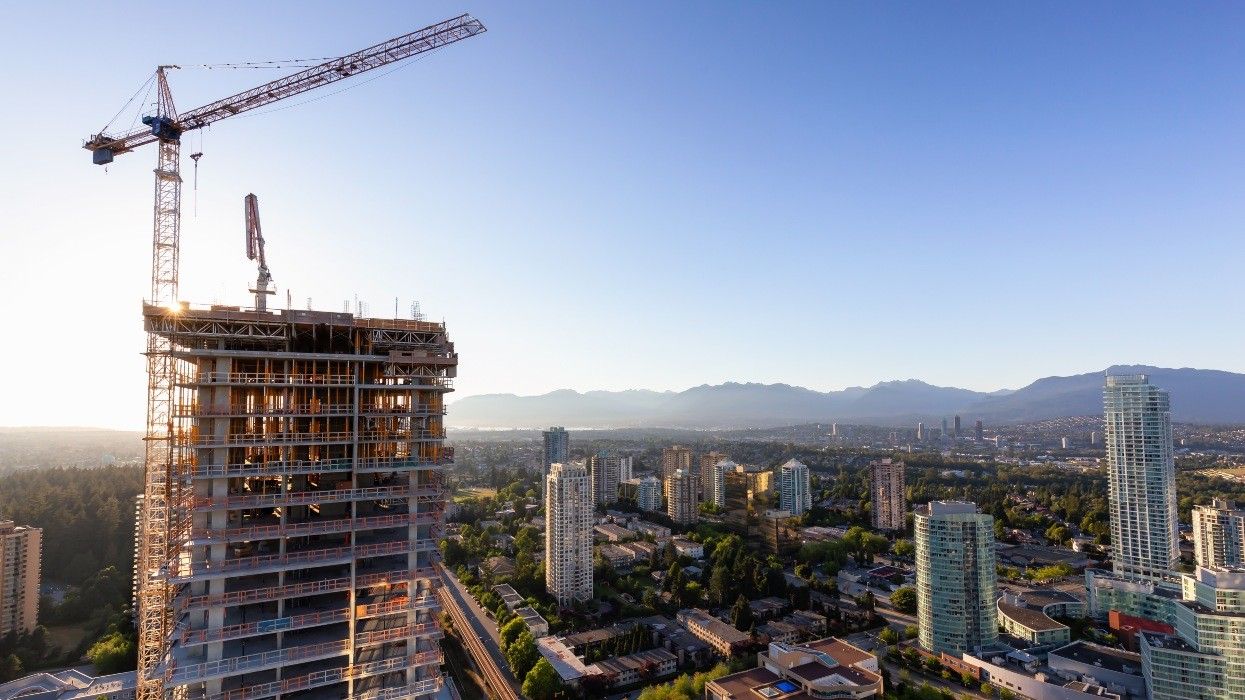On Tuesday, the Government of British Columbia announced its latest action to address the concerns around development cost charges (DCCs) and help facilitate new construction, extending the in-stream protection period for the Metro Vancouver Regional District's DCCs from one year to two years.
Metro Vancouver has a tentative agreement with the Government of Canada for $250 million from the Canada Housing Infrastructure Fund (CHIF) that would go towards the Iona Island Wastewater Treatment Plant in Richmond. Under the CHIF, applicants must meet several requirements, one of which was to freeze their DCC rates to the rates as of April 2, 2024 for three years.
In December, Metro Vancouver told STOREYS that it was looking into "alternative measures" allowed under the CHIF, which was revealed in February to be an extension of the in-stream protection period from 12 months to 24 months.
The change was one of several that a group of prominent developers asked for during their letter-writing campaign last year, but was technically in the hands of the Province, which governs DCCs through the Local Government Act.
This morning, the Province announced that it has made the changes and that an order-in-council will bring the changes — delivered via the Miscellaneous Statutes Amendment Act, 2025 (Bill 13), which received royal assent on May 29, 2025 — into effect. Developers who submitted their application before March 22, 2024 and were issued permits between March 23, 2025 and March 22, 2026 will thus be subject to the DCC rates in effect prior to the substantial increases that were approved in Fall 2023. Those increases are being implemented in phases, with increases on January 1 of 2025, 2026, and 2027.
"Extending the instream protection period for Metro Vancouver's DCC increase is a meaningful step that reflects the realities of today's development environment," said Anne McMullin, President & CEO of the Urban Development Institute. "Current high-cost conditions have placed significant pressure on project viability, and without this change, many projects would not have been able to proceed. This change demonstrates a practical understanding of the barriers facing the industry and helps ease some of the immediate pressure on projects, so they can move forward."
"This extension of DCC protection to 24 months is a positive step for housing development in Metro Vancouver, improving our collective ability to move forward and support more housing and construction activity across the region," added Bosa Properties CEO Colin Bosa. "We look forward to continued collaboration with all levels of government to address broader housing challenges and deliver more homes for British Columbians."
The change comes just two weeks after the Province announced legislative changes to expand the use of on-demand surety bonds for development cost charges and amenity cost charges (ACCs). Another change announced allows those fees to be paid across four years rather than two. Following the change, which comes into effect on January 1, 2026, developers will be able to pay 25% of the fees at the permit approval stage and the remaining 75% upon occupancy or within four years, whichever comes first.
Over the past year, the real estate market has remained subdued, forcing developers big and small to pause their projects and even lay off staff. With market forces generally being hard to control, developers have continued to point to development charges as something governments can address that can make a difference. In turn, governments across the region have shown a strong willingness to make these kinds of changes, perhaps recognizing that if developers cannot proceed with their projects they won't be able to collect any fees at all.





















